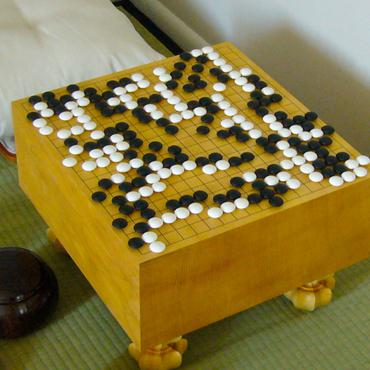Game of Go
19 papers with code • 1 benchmarks • 1 datasets
Go is an abstract strategy board game for two players, in which the aim is to surround more territory than the opponent. The task is to train an agent to play the game and be superior to other players.
Libraries
Use these libraries to find Game of Go models and implementationsMost implemented papers
Mastering Chess and Shogi by Self-Play with a General Reinforcement Learning Algorithm
The game of chess is the most widely-studied domain in the history of artificial intelligence.
Mastering Atari, Go, Chess and Shogi by Planning with a Learned Model
When evaluated on Go, chess and shogi, without any knowledge of the game rules, MuZero matched the superhuman performance of the AlphaZero algorithm that was supplied with the game rules.
Accelerating Self-Play Learning in Go
By introducing several improvements to the AlphaZero process and architecture, we greatly accelerate self-play learning in Go, achieving a 50x reduction in computation over comparable methods.
Better Computer Go Player with Neural Network and Long-term Prediction
Against human players, the newest versions, darkfores2, achieve a stable 3d level on KGS Go Server as a ranked bot, a substantial improvement upon the estimated 4k-5k ranks for DCNN reported in Clark & Storkey (2015) based on games against other machine players.
MoËT: Mixture of Expert Trees and its Application to Verifiable Reinforcement Learning
By training Mo\"ET models using an imitation learning procedure on deep RL agents we outperform the previous state-of-the-art technique based on decision trees while preserving the verifiability of the models.
Planning in Stochastic Environments with a Learned Model
However, previous instantiations of this approach were limited to the use of deterministic models.
Teaching Deep Convolutional Neural Networks to Play Go
Our final networks are able to achieve move prediction accuracies of 41. 1% and 44. 4% on two different Go datasets, surpassing previous state of the art on this task by significant margins.
Move Evaluation in Go Using Deep Convolutional Neural Networks
The game of Go is more challenging than other board games, due to the difficulty of constructing a position or move evaluation function.
FML-based Dynamic Assessment Agent for Human-Machine Cooperative System on Game of Go
In this paper, we demonstrate the application of Fuzzy Markup Language (FML) to construct an FML-based Dynamic Assessment Agent (FDAA), and we present an FML-based Human-Machine Cooperative System (FHMCS) for the game of Go.
ELF OpenGo: An Analysis and Open Reimplementation of AlphaZero
The AlphaGo, AlphaGo Zero, and AlphaZero series of algorithms are remarkable demonstrations of deep reinforcement learning's capabilities, achieving superhuman performance in the complex game of Go with progressively increasing autonomy.


 PAGE
PAGE

